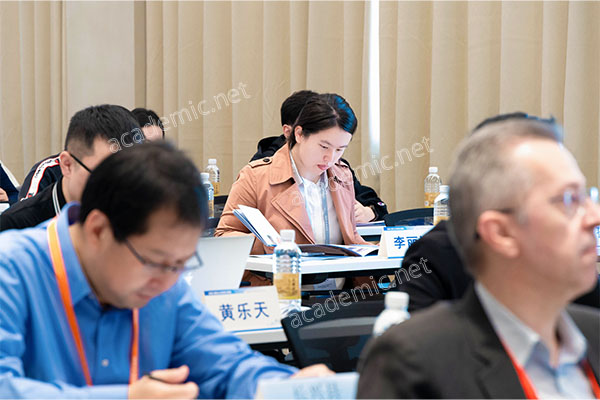The Future of Emotional Intelligence: Trends from EI Journals and Their Conference Implications
Exploring the evolution of Emotional Intelligence (EI) through the lens of academic journals reveals a dynamic field that’s expanding in innovative directions. These trends, captured in scholarly articles, not only advance the theoretical landscape of EI but also have profound implications for professionals attending EI conferences. Let's delve into some of these key trends and their potential impact on the future of EI conferences.

Trend: Increasingly, research is focusing on how emotional intelligence manifests and can be developed in digital environments, including social media, virtual workspaces, and online education platforms.
Conference Implications: This trend suggests an emerging theme for EI conferences—how to cultivate and leverage EI in digital communications and remote teams. Sessions could explore tools and strategies for assessing and enhancing EI online, potentially featuring demos of cutting-edge digital tools designed to measure and improve digital emotional engagement.
2. **Cross-Cultural Emotional Intelligence**
Trend: There’s a growing interest in understanding how emotional intelligence operates across different cultural contexts. This includes studies on universal vs. culture-specific aspects of EI and how it affects cross-cultural communication and leadership.
Conference Implications: Future EI conferences could host panels and workshops focused on cross-cultural emotional intelligence, offering insights for global leaders and multinational teams. These sessions could facilitate deep dives into case studies of successful cross-cultural collaboration, fostering a more inclusive and global approach to EI.
3. **AI and Emotional Intelligence**
Trend: The intersection between AI and EI is gaining traction, with research exploring how artificial intelligence can recognize, interpret, and even mimic human emotions.
Conference Implications: This trend could lead to captivating conference segments on AI's role in augmenting human EI, including ethical discussions, demonstrations of AI-driven emotional analytics tools, and debates on the future of human-AI emotional interactions.
4. **Neuroscience and Emotional Intelligence**
Trend: Advances in neuroscience are shedding light on the neurobiological underpinnings of emotional intelligence, offering deeper insights into how EI skills are developed and can be enhanced.
Conference Implications: Conferences could incorporate sessions on the neuroscience of EI, inviting neuroscientists to present their findings. Such discussions could bridge the gap between neuroscience and practical EI applications, informing approaches to EI training and development.
5. **Sustainability and Emotional Intelligence**
Trend: The linkage between emotional intelligence and sustainable practices within organizations highlights EI's role in fostering environmental stewardship and social responsibility.
Conference Implications: This could translate into conference tracks dedicated to EI's contribution to sustainability, showcasing how EI competencies like empathy, self-awareness, and social skills can drive sustainable business practices and corporate social responsibility initiatives.
**Adapting to the Future**
As these trends influence the content and structure of EI conferences, attendees must stay informed through leading EI journals. Platforms like academic.net can be pivotal, offering access to the latest EI research and information on upcoming conferences that align with these evolving trends.
By keeping a pulse on these trends, EI professionals can not only enhance their conference experience but also play an active role in shaping the future of emotional intelligence in their respective fields.
